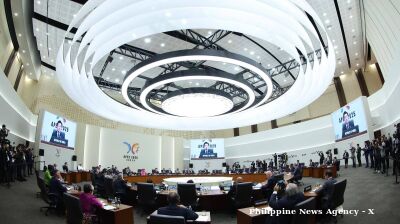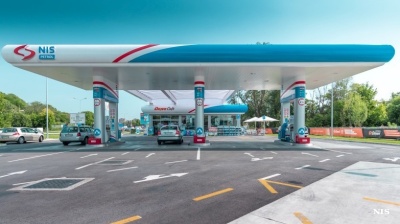Ukraine’s Presidential Office plans to cancel the moratorium on the sale of farmland by the end of this year, its deputy head Oleksiy Honcharuk told Bloomberg on July 30. It will be a highly emotive reform.
Creating a market for land and privatising farmland is a priority request from the International Monetary Fund (IMF), but the issue was successfully delayed by former President Petro Poroshenko. Any such move faces strong opposition from many lawmakers.
“There’s an understanding in the team that if it’s not done this year, it will be quite difficult,” said the 35-year-old Honcharuk, identified as head of the president’s economic team and as a potential candidate for prime minister.
In December 2018, the nation's parliament, the Verkhovna Rada, greenlighted a law on extending the moratorium on the sale of agricultural land until January 1, 2020. In May, Ukraine's Prime Minister Volodymyr Groysman said the Ukrainian cabinet will allow sales of agriculture land only to individuals with Ukrainian citizenship and up to a maximum of 200 hectares of land per person.
The team is discussing with the World Bank the model of the farmland market, including whether to allow foreigners to enter and possible limitations on purchases.
Introducing a market for land will bring several billion dollars into the budget in the first year according to previous studies and should lead to accelerated investment in the Ukraine agricultural sector. Ukraine is currently a country with few really profitable assets. An open farmland market has the potential to add between 0.5% and 3.0% to annual GDP growth, Honcharuk said. “We’re looking for the least painful but most efficient version,” he said.
"Amending the legislation to unlock land-related transactions would generate significant economic gains, including higher incomes and greater tax revenues. New legislation on agricultural land sales is expected to be submitted by end-September 2016," the IMF wrote.
Managing partner of ICU Investment Group Makar Paseniuk believes that one of the fastest instruments for attracting at least $15bn-20bn could be the offer of state-owned agricultural land estimated at 10mn hectares.
"Land reform would be a huge driver for the further development of our country, as it can be done quickly and it will quickly attract FDI," Interfax quoted Paseniuk as saying at a financial forum organised by ICU in Odesa.
"The cost of all state farmland is $15bn-20bn, which can be compared with the existing IMF programme in the amount of $17.5bn or more, which is twice as much as the National Bank of Ukraine (NBU)'s net reserves of $6.8bn."
The land market’s creation would be part of a staff-level agreement with the IMF in September for a three- to four-year programme to replace the current Stand-By Agreement (SBA) that expires at the year end, Honcharuk said.
The new Volodymyr Zelenskiy administration is also hoping to improve the terms of its IMF deal. The deal was downgraded from a three year Extended Fund Facility (EFF) to an SBA as punishment for foot-dragging on reforms by Poroshenko, who ardently resisted implementing anticorruption reforms in particular.
Honcharuk said the president’s team is planning market-based economic policies that the likes of Poland and Hungary introduced two decades ago, Bloomberg reported.
Besides a farmland market, the president’s team wants to sell large state enterprises, starting with banks. “I want 10 big systemic banks to enter Ukraine,” Honcharuk said. “When we show changes in the approach to privatization, farmland sales, when we attract a couple of big companies to extract natural resources – all of those examples will give clear signals that the rules have changed,” he said.
“Approving legislation to launch the farmland market now looks likely for this fall. Organizing and launching the market will be difficult, not likely to occur for at least another year. We are confident that Zelenskiy’s poll ratings will plummet at least 5%, but possibly closer to 10%, once the market is approved in parliament. Between 66% and 77% of Ukrainians oppose its creation, according to polls, despite all the gains they stand to make. They don’t trust state officials to create such a market in a fair and organized way. If Zelenskiy’s team is able to organize a fair and well-functioning market, the president could eventually recover much of the lost support related to its creation,” Zenon Zawada of Concorde Capital said in a note.
“Approving legislation to create the market will be a critical step in securing a new IMF loan program. Once a multi-year program is approved, Zelenskiy will have to pursue pro-Western policies in order to continue receiving IMF loan tranches. Any decisions in Russia’s favour, such as cutting a deal on Donbas in exchange for cheaper natural gas, would threaten Ukraine’s ability to draw IMF loan tranches. So we believe Zelenskiy is likely to pursue a pro-Western political course during his presidency, though a sudden turn towards Russia is possible,” Zawada added.
News

Presidents Lee and Xi begin diplomatic chapter at APEC summit
President Lee, who is chairing the first session of the summit at the Hwabaek International Convention Centre, stood at the entrance to personally welcome participants. President Xi reached the venue at approximately 10:02.

South Korea opens APEC summit focusing on connectivity and growth
South Korean President Lee Jae Myung chaired the opening session of the Asia Pacific Economic Cooperation (APEC) Leaders’ Meeting on the morning of October 31 in Gyeongju, North Gyeongsang Province.

Serbia’s NIS posts 9-month net loss as US sanctions weigh on performance
NIS, majority-owned by Russia’s Gazprom Group, said it had operated in “extremely complex circumstances” after sanctions were announced by the US Treasury Department.

Nigeria's Heirs Energies' CFO on powering growth via sustainable, indigenous-led development
NewsBase speaks exclusively to Samuel O. Nwanze, Executive Director and Chief Financial Officer of Nigerian indigenous integrated oil and gas company Heirs Energies.




